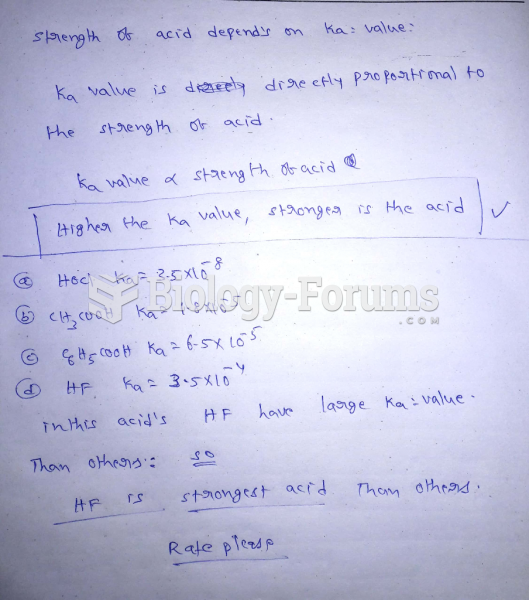|
|
|
Each year in the United States, there are approximately six million pregnancies. This means that at any one time, about 4% of women in the United States are pregnant.
More than 30% of American adults, and about 12% of children utilize health care approaches that were developed outside of conventional medicine.
Urine turns bright yellow if larger than normal amounts of certain substances are consumed; one of these substances is asparagus.
People with high total cholesterol have about two times the risk for heart disease as people with ideal levels.
Although the Roman numeral for the number 4 has always been taught to have been "IV," according to historians, the ancient Romans probably used "IIII" most of the time. This is partially backed up by the fact that early grandfather clocks displayed IIII for the number 4 instead of IV. Early clockmakers apparently thought that the IIII balanced out the VIII (used for the number 8) on the clock face and that it just looked better.







